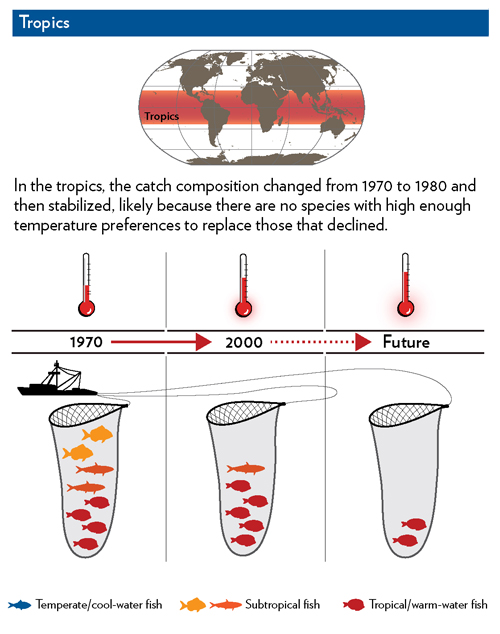While much of the discussion about climate change focuses on the threat of future sea level rise, scientists at the University of British Columbia say warmer global temperatures have been affecting the world's oceans and fisheries for some 40 years.
They used known temperature preferences of fish and other marine species as a sort of "thermometer" to gauge the extent of the change, and they saw a gradual migration of fish species away from the equator into cooler, deeper waters.
The researchers analyzed data from global fisheries from 1970 to 2006 and found the catch was increasingly dominated by warm-water species. Lead author William Cheung notes that while boats off the northeastern coast of the U.S. were catching new species typically found closer to the tropics, "in the tropics, climate change meant fewer marine species and reduced catches, with serious implications for food security."
The study of the changes in fish distribution worldwide as a result of climate change is published in this month's Nature.


They used known temperature preferences of fish and other marine species as a sort of "thermometer" to gauge the extent of the change, and they saw a gradual migration of fish species away from the equator into cooler, deeper waters.
The researchers analyzed data from global fisheries from 1970 to 2006 and found the catch was increasingly dominated by warm-water species. Lead author William Cheung notes that while boats off the northeastern coast of the U.S. were catching new species typically found closer to the tropics, "in the tropics, climate change meant fewer marine species and reduced catches, with serious implications for food security."
The study of the changes in fish distribution worldwide as a result of climate change is published in this month's Nature.







